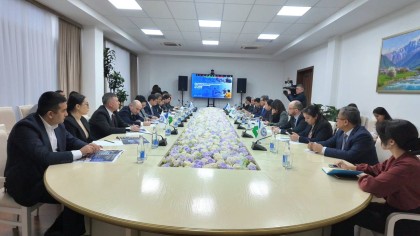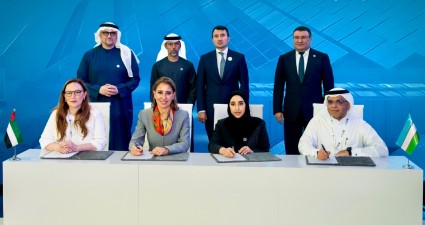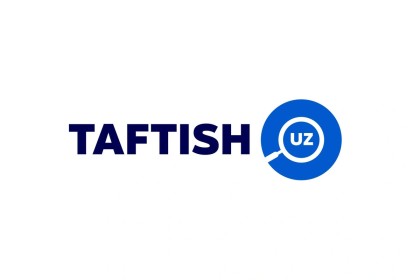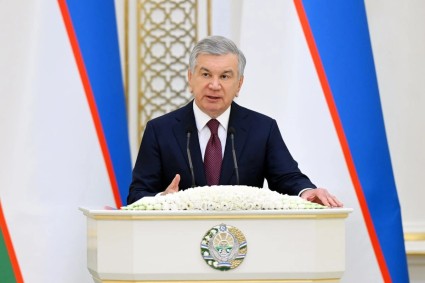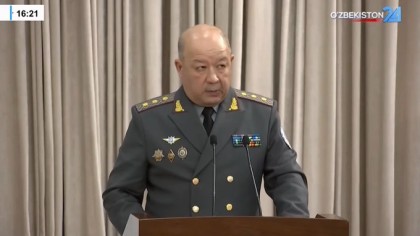Uzbekistan’s President will visit Brussels on 24 October 2025 to sign the Enhanced Partnership and Cooperation Agreement (EPCA) with the EU. The deal marks a new phase in political, trade, and security cooperation, strengthening ties and supporting reforms and sustainable development.
Uzbekistan’s President, Shavkat Mirziyoyev, will pay an official visit to Brussels on 24 October 2025, marking a significant step forward in relations with the European Union. During the visit, Uzbekistan and the EU are expected to sign the Enhanced Partnership and Cooperation Agreement (EPCA), a comprehensive framework that defines future collaboration across five strategic areas, including political dialogue, trade, security, and sustainable development. The agreement underscores both sides’ commitment to continued reforms, economic modernization, and global cooperation, while setting the stage for further initiatives such as the upcoming EU–Central Asia Investment Forum in Tashkent this November.
In his congratulatory message marking Uzbekistan’s Independence Day, President of the European Council António Costa underscored the upcoming visit of Uzbekistan’s President to Brussels on 24 October 2025, where an important agreement will be signed.
“I look forward with great anticipation to our meeting in Brussels on October 24, 2025, where we will have the opportunity to continue our exchange of views on the occasion of the signing of the Enhanced Partnership and Cooperation Agreement between the European Union and Uzbekistan,” Costa stated.
In her speech at the first EU-Central Asia Summit, President of EU Commission Ursula von der Leyen spoke of deepening trade ties, expanding cooperation in transport, critical raw materials, digital connectivity, water, and energy, backed by an €12 billion of investment package under the Global Gateway program.
“Uzbekistan plays a crucial role and has a very prominent place in Global Gateway. This is the beginning of a new chapter in our long standing friendship”, said Ursula von der Leyen in Samarkand summit.
Areas of cooperation
The EPCA is expected to provide a new, modern and ambitious framework to step up the EU-Uzbekistan partnership. The agreement includes new areas of cooperation and significantly upgrades the regulatory framework for trade and economic relations.
Under the EPCA, the main areas of cooperation between the EU and Uzbekistan is planned to include:
- Political cooperation and reforms: the Agreement puts a strong emphasis on shared values, democracy and the rule of law, human rights and fundamental freedoms and sustainable development.
- Enhanced cooperation in foreign and security policy, with a focus on regional stability and international cooperation, non-proliferation of weapons of mass destruction, conflict prevention and crisis management.
- Justice, Freedom and Security cooperation, covering data protection, migration, the fight against money laundering and terrorism, organised crime and corruption, tackling illicit drugs, as well as judicial cooperation and consular protection.
- Trade, as the EPCA is planned to ensures a better regulatory environment for economic operators in areas such as trade in goods and services, state-owned enterprises, procurement, and intellectual property rights.
- Enhanced cooperation in a number of other key policy areas, including economy and finance, energy, transport, environment and climate change, digital economy, agriculture and rural development, employment and social affairs, culture, education and youth, and research.
“This agreement reflects how much both the EU and Uzbekistan have evolved over the last 20 years. For the EU, it is part of our broader Central Asia strategy. For Uzbekistan, it recognizes the path of reform and openness the country has undertaken since 2016. The EPCA elevates our relationship into a strategic partnership, with a stronger political foundation and broader sectoral cooperation than ever before”, the EU Delegation in Uzbekistan told Euronews.
A new strategic level of cooperation
“The Enhanced Partnership and Cooperation Agreement, or EPCA, marks a historic milestone in relations between Uzbekistan and the European Union”, commented Uzbekistan’s Ministry of Foreign Affars.
“It replaces the 1996 Partnership and Cooperation Agreement and reflects how far our country has advanced since then — politically, economically, and institutionally”.
Uzbekistan’s MFA also comments:
“This new agreement provides a modern and comprehensive framework for political dialogue, trade, and sectoral cooperation. It aligns perfectly with Uzbekistan’s ongoing reforms and our commitment to building a transparent, open, and rules-based economy.
For the European Union, the EPCA means access to a rapidly developing market in the heart of Central Asia, a reliable partner in the energy transition, and a trusted bridge connecting Europe and Asia through sustainable transport corridors and critical raw materials. For Uzbekistan, it opens the door to deeper economic integration with Europe — better access to EU markets under our GSP+ status, and support for modernization across key sectors such as energy, digitalization, agriculture, and the green economy.
Beyond trade, the EPCA expands cooperation in areas that matter to both sides — climate action, security, migration management, and environmental protection. These are truly shared challenges that require joint solutions.
Overall, the Agreement strengthens Uzbekistan’s international standing and shows that our country is serious about being a constructive and reliable partner. It brings our relationship with the European Union to a new strategic level, fully aligned with our long-term vision of building a modern, open, and sustainable economy in line with global and European standards.
Growing momentum in EU–CA relations
Relations between Uzbekistan, Central Asia and the European Union have intensified significantly in recent years. Over the past seven years, the region’s trade turnover with the EU has multiplied, reaching €54 billion. In 2024, trade turnover between Uzbekistan and EU countries increased to €6,4 billion (+8%), and over 1,000 joint ventures are operating in the country, with the total portfolio of European investment projects almost €40 billion. This cooperation has been supported by the launch of effective platforms, with regular ministerial meetings, forums and summits in all major areas of partnership.
From Samarkand to Brussels: Strategic partnership on the horizon
Reflecting on his visit to Uzbekistan earlier this year, Costa recalled: “Our partnership has undoubtedly reached a new stage, distinguished by productive and multifaceted cooperation across all areas under your leadership. I retain vivid and pleasant memories of our meeting in Samarkand last April during the first European Union – Central Asia Summit, where I also had the privilege of experiencing the hospitality of the Uzbek people.”
At the first EU–Central Asia Summit in Samarkand in April, leaders adopted a Joint Declaration establishing a new framework for strategic partnership between the two regions. Another declaration on cooperation in the field of critical minerals was also signed, signaling the importance of energy transition and supply chain security in the evolving partnership.


